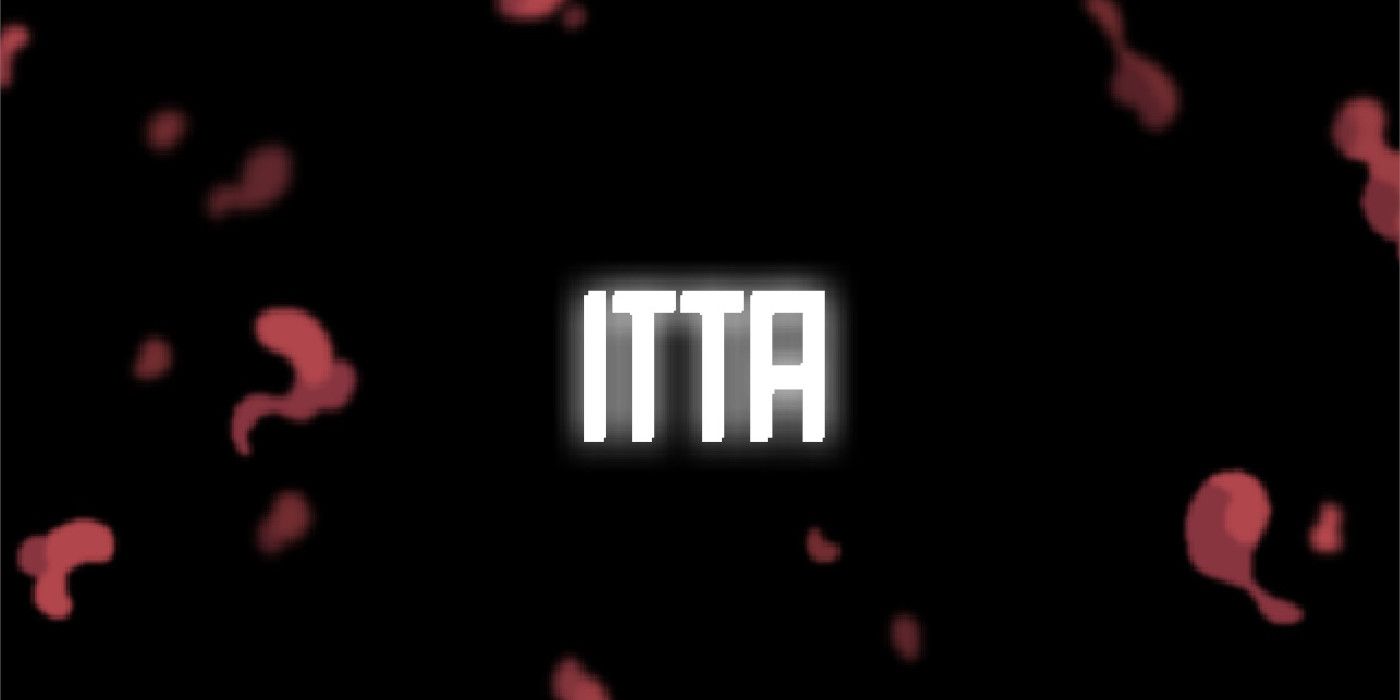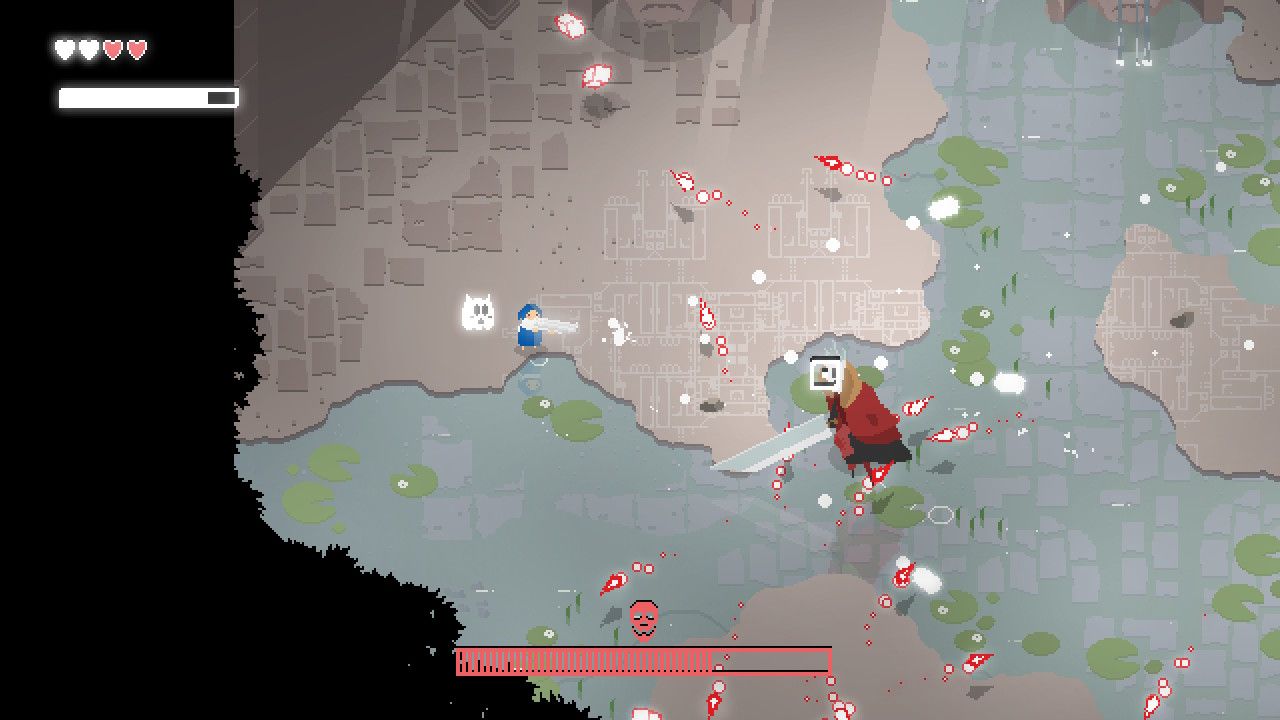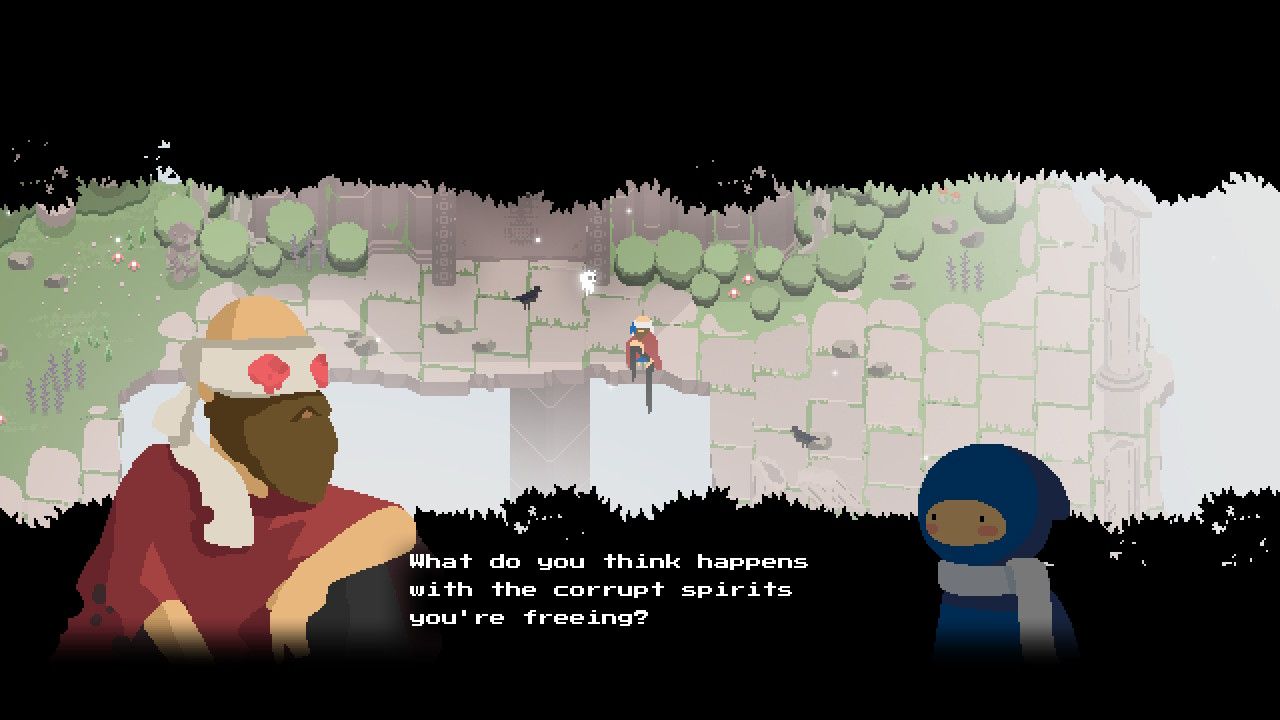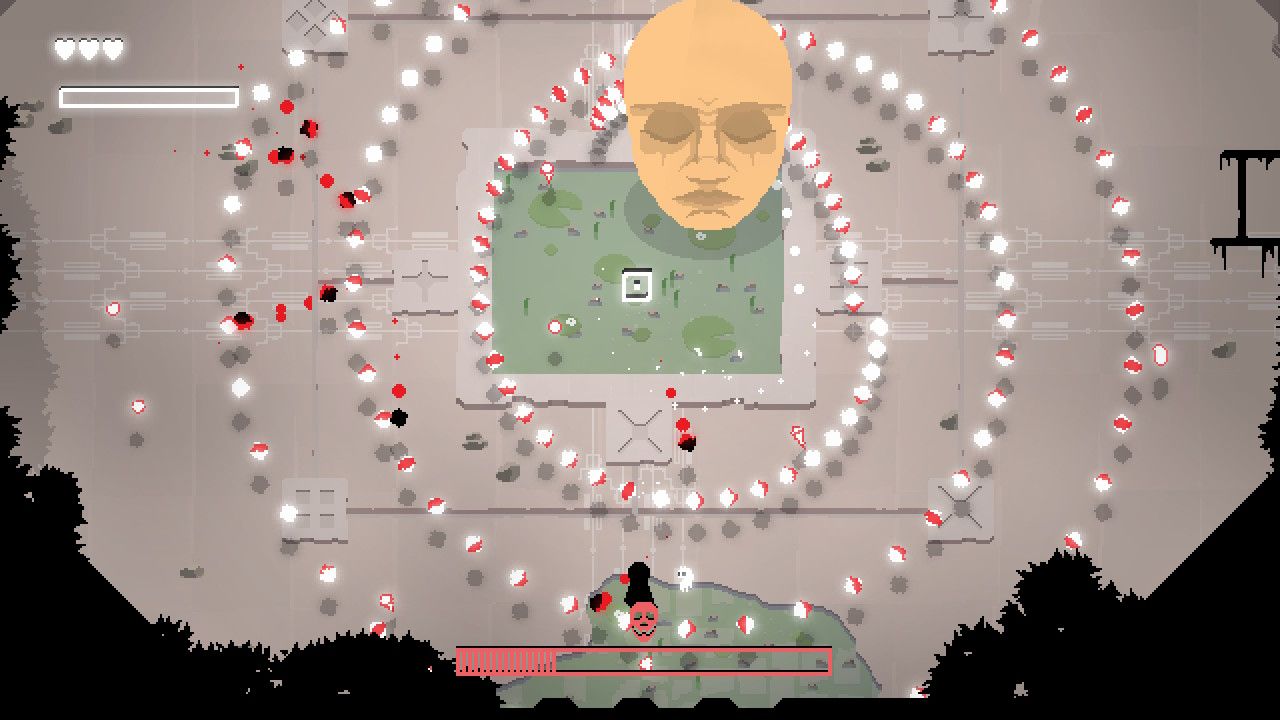
The new bullet-hell action game Itta sounds like a sure-fire win. As part of the rarely-seen boss-rush genre, it retains some compelling echoes from games like Shadow of the Colossus and Titan Souls, as well as the weary fatalistic tone of the "Soulsborne" series. With a strong concept and an atmospheric visual design, its often engrossing aesthetic sadly falters behind murky mechanics and inconstant gameplay. Itta is short, not necessarily sweet, but also a unique combination of bullet-dodging and indie-gloom.
The main character’s rosy cheeks peeking through the hood of their blue traveler’s garments seem a bit twee for their grim surroundings, and their design seems something of a misdirect, especially when the very first scene finds their family dead and bloodied in a cave. Joined by their deceased cat as a chatty guiding spirit, Itta travels through an unusual, purgatorial landscape, laying waste to bosses, discovering new weapons, and chatting up doomed NPCs. The camera perspective and pixelated environments look a little bit like Hyper Light Drifter—although with considerably less pinks and purples—and while it’s a confident art style, it’s also frequently muddy, making it difficult to ascertain what’s a stair, a ledge, or a walkway. It doesn’t really affect gameplay since Itta cannot perish anywhere in the overworld, but the lack of discreet edges and borders in the art style definitely contend with the isometric view.
As is typical with most boss-rush games, there are no pushover enemies to fight, leaving the 18 bosses as the main event. Right from the start, entering a boss chamber quickly leads to spyrograph-like webs of black and white bullets, all of which can be dodge-rolled through or skated by with a rather forgiving hitbox. You quickly obtain a basic revolver, but there are several other weapons to discover if you take the time to explore the various ruins. Aside from other weapons, there are also a few health upgrades and a wide array of different skins for your ghostly feline companion, though the latter has absolutely no effect on combat. There are three large interconnected environments to traipse around, and rinsing the game requires a little bit of patience, with the occasional bombable wall or very light puzzle to be solved.

It’s a shame that most of Itta’s systems seem to fray with each tested thread. Your arsenal, for example, is largely wasted for two reasons: most weapons do not have strong application in combat, and switching between weapons during a fight is an absolute chore, with no way to “fave” different weapons or conveniently choose the right one at the right time. The shotgun pushes you back a few steps with each shot, which is a death sentence for a bullet-hell game, and the bomb is great for cracking walls but impossible to wield in an actual fight. You’ll find the few you like and use them in most every encounter, which makes the rest feel like poorly implemented filler stock.
An additional companion joins you as well, a pitch-black demon who takes over your character after enough damage has been dealt, turning Itta invincible and boosting damage output. Unfortunately, as with the other mechanics, the implementation doesn’t make sense, since the demon gauge is static between fights. At one point, you may trigger them during the boss’s easier first phase, then lack it in the second, making management of this ability feel seemingly random.

The bosses themselves are also very (no pun intended) hit-or-miss, and each fight transpires the exact same way. First you’ll whittle the boss down to half their health bar as you learn their bullet patterns, at which point they’ll upgrade and incorporate faster attacks and/or begin to apply environmental threats, like a drifting shadowy hand or a huge floating sword. The patterns are pretty intense, even from the first few bosses, and aside from some cheap tactics (looking at you, instantly-teleporting swordsman) they are rather satisfying to learn and maneuver around.Some encounters are standouts—one boss is joined by a massive bullet-spewing head as an entire second boss to deal with—but a bulk of the 18 are more chore than challenge. There’s also a decided lack of visual and aural feedback when bosses take damage, a small detail but cardinal misstep for this type of game.
Due to Itta’s open design of exploration, players are usually free to leave many boss fights for later, though the lack of any fast-travel option means that most will want to stay put until they’re successful. In an interesting turn reminiscent of Celeste, an accessibility feature in the menu lets you easily turn on invincibility or double damage at any time. The former can’t help but feel like a cheat, but it also means that progress is always an option, while the latter actually made this reviewer appreciate the rhythm of the game more, and is definitely recommended.
The discordant soundtrack is not going to be up everyone’s alley, with a warbling, off-putting and desolate feel that occasionally fits the scene, but definitely doesn’t fit the boss fights themselves. It can be muddy and meandering, much like the visual style and even the narrative, unique in its approach but also kind of weightless and hard to make sense of. There is a narrative here that feels meaningfully personal but, considering the wide variety of cues Itta borrows from other games, the gameplay itself compromises the story intentions. You can’t help but want for the rock-solid combat mechanics (and weapon-swapping) from Enter the Gungeon, the characterful bosses from Furi, the deep and toothsome lore of Dark Souls.

Of course, Itta is a much, much smaller project than all of the above, and it does manage to eke out its own sense of character with what’s at hand. The game can be completed in one or two sittings, after which you’re free to continue exploring, looking for secrets you missed and taking in the overgrown structural gloom. Itta draws inspiration from some of the best games of the decade, but this also might make its comparably rough edges feel coarser. Still, if you’re looking to dodge bullets and clamber up grassy ruins, this will scratch the itch.
Itta is available on Steam/PC and the Nintendo Switch eShop for $19.99. A digital code for the Nintendo Switch was provided to Screen Rant for purposes of review.
https://ift.tt/2zwN6VT
April 25, 2020 at 05:33AM




